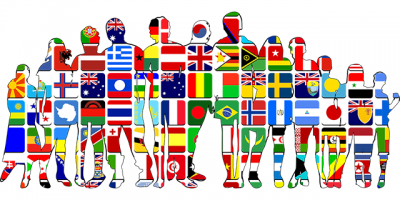
It's well known the pandemic has had a significant impact on the United States economy, especially on women. Particularly notable is the steady decline of women in the workforce.
Over the course of the first 10 months of the pandemic, women—particularly women of color— lost more jobs than men.1 Through December 2020, Fairfax County lost an estimated 48,200 jobs, with employment losses most heavily concentrated in industries that have a high concentration of low-wage earners. These industries, such as food service, hospitality and retail sectors, are also disproportionately concentrated with women of color.2 Similarly, the distribution of job losses has disproportionately impacted people with incomes below the poverty line, and those with little or no formal education and training.
Prior to the pandemic, there was a pervasive history in the U.S. of gender-based income inequities. Job losses and layoffs due to the pandemic have exacerbated these inequities, making the road to economic stability longer and more challenging.
Women were more likely than men to work part-time because of caregiving responsibilities at home, and even full-time workers earned on average only 81 cents for every dollar of their male peers.3
In 2019, the median annual earnings for women working full-time, year-round was $47,299, or 82% of men’s earnings. Most women of color—particularly Black, Hispanic, Asian and Native American women—experienced a wider wage gap due to the persistence of intersecting gender, race and ethnic biases.1
 In domestic and sexual violence situations, life stressors can exacerbate the frequency and intensity of violence. For example, victims of domestic violence who called the Fairfax County Domestic and Sexual Violence 24-Hour Hotline during the height of the pandemic reported greater frequency of abuse by partners as well as harsher types of violence, including use of weapons, such as guns and knives. The Hotline also averaged longer calls in duration as Hotline specialists, including Hotline volunteers, processed greater levels of trauma with victims and developed more creative safety plans, as typical options were limited for many victims during the pandemic.
In domestic and sexual violence situations, life stressors can exacerbate the frequency and intensity of violence. For example, victims of domestic violence who called the Fairfax County Domestic and Sexual Violence 24-Hour Hotline during the height of the pandemic reported greater frequency of abuse by partners as well as harsher types of violence, including use of weapons, such as guns and knives. The Hotline also averaged longer calls in duration as Hotline specialists, including Hotline volunteers, processed greater levels of trauma with victims and developed more creative safety plans, as typical options were limited for many victims during the pandemic.
As providers of services and support to those impacted by domestic and sexual violence, stalking and human trafficking, DSVS staff and volunteers must:
- possess insight into gender-based income injustices, particularly for women of color;
- understand how financial stressors impact individuals who harm, experience harm and their families; and
- recognize additional impacts that financial stressors can exact, including food insecurity, loss of employment, inadequate housing and health concerns.
We challenge you to continue to increase your knowledge about the impact of race, ethnicity and gender biases on the economic outlook of those we serve. This knowledge will better enable DSVS staff and volunteers to fully “see” those with whom they communicate and serve. It also allows us to become stronger advocates and have a greater role with advancing equity for the most marginalized and vulnerable populations.
—DSVS Equity Impact Team
2 Fairfax County Economic Recovery Framework. Prepared for: Fairfax County & Fairfax County Economic Development Authority Prepared By: HR&A Advisors, Inc. January 2021.
3 Jobs report shows 140,000 jobs were lost in December. All of them were held by women – CNN
This article posting is part of the Domestic and Sexual Violence Services' Volunteer Voices monthly newsletter for current and potential volunteers. If you're not already a volunteer, learn how to get involved. Find out about upcoming trainings, volunteer trainings, happenings around the DSVS office and information about articles, books, media recommendations and more.
Learn more about the Domestic and Sexual Violence Services (DSVS).

